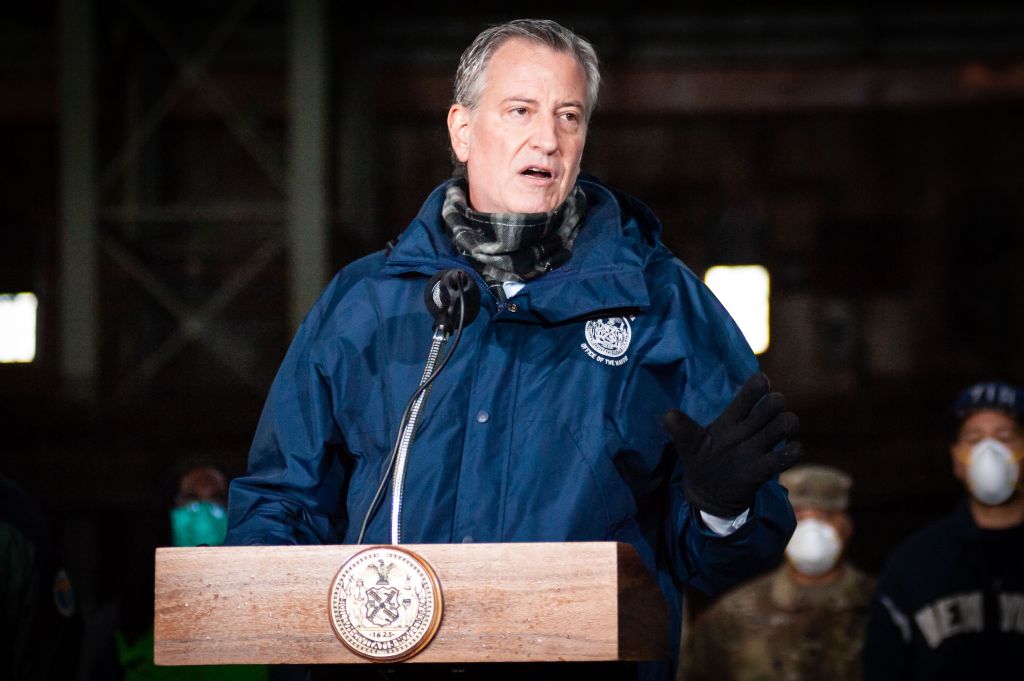[ad_1]
Under normal circumstances, the arts function as one of New York’s most important economic engines, responsible for employing roughly 300,000 people and driving more than $110 billion in income. But the arrival of the coronavirus pandemic in March has put the industry on lockdown, with museums, galleries, and theaters closed for the foreseeable future. Now facing an immense shortfall in tax revenue—about $7.4 billion—the city has proposed a revised budget for the next fiscal year that would reduce the overall budget by $3.4 billion, compared to last year’s adopted budget. Among those cuts is a budgetary reduction of $10.6 million for the Department of Cultural Affairs (DCLA).
“While we don’t take any reductions lightly, especially in the middle of this crisis when funds are desperately needed, we have mitigated the reductions given the broader fiscal realities the city is dealing with,” said a department spokesperson. “We are committed to working toward a 2021 fiscal year adopted budget that supports our constituents and accounts for the challenges this crisis continues to present to our city.”
Last fiscal year, the DCLA received $212 million, the largest-ever allocation in the agency’s history. If passed, the new executive budget would provide $137 million to cultural programming, marking a 35 percent reduction. Such proposals are subject to change, with a final vote by City Hall coming on June 30.
However, New York Mayor Bill de Blasio’s revisions aim to keep DCLA’s core funding streams intact, and baseline funding for the department has only been cut 5 percent compared to last year’s initial proposal. The Cultural Institutions Group (a coalition of subsidized arts organizations in the city) and the Cultural Development Fund (an annual grant-making process) would receive $128.4 million from the executive budget, which is a four percent decrease in spending from the initial 2021 budget. According to the DCLA, that decrease reflects $2.7 million in savings on utilities like heat and electricity; additionally, $3.1 million will be taken from the baseline funding streams, which will not impact organizations that receive money from the city. Other reductions were made to unallocated funding intended to support CreateNYC initiatives to broaden access to the arts, emergency funding, and departmental staff positions that remain vacant.
“We are predicting around a 30 percent decrease in DCLA support, which would be about $100,000,” Brett Littman, director of the Noguchi Museum in Queens, told ARTnews. “That’s a conservative estimate. It’s hard to put a finger on what will happen. The bigger issue is that none of my colleagues have gotten money from the Payroll Protection Program (PPP).” The Noguchi Museum, Littman said, has requested $450,000 from PPP, which accounts for salaries and utilities.
“I think the art world is going to have a reckoning,” he added, noting that arts organizations have had to weather DCLA cutbacks during the Great Recession and fallout from the September 11 terrorist attacks. “Overall, we may have to push programs—most about 8 months; we might go further to a year and not do any new shows.”
The impact of the coronavirus pandemic on the DCLA’s budget will certainly pose a challenge to the agency’s incoming commissioner, Gonzalo Casals. The former museum director was scheduled to begin work last week but was hospitalized after exhibiting coronavirus-like symptoms. He has since returned home to recover. The department has not yet released Casals’s new start date.
“DCLA staff and leadership will welcome Gonzalo as soon as he’s able to start, but we will continue to run DCLA’s day-to-day operations in the event that’s delayed,” an agency spokesperson said.
But the impact of the mayor’s budget cuts on areas outside the arts could also have a significant impact on the city’s cultural institutions. Earlier this month, the mayor suspended the city’s summer youth employment program. Roughly 75,000 jobs were eliminated in the action, cutting crucial support for the many nonprofits that participate in the program. Last week, Socrates Sculpture Park director John Hatfield told ARTnews that the Queens cultural institution would be impacted, along with more than a dozen teens that typically participate in the program.
“If there is not federal aid, then you will see many tough decisions that will really hold us back—even in our ability to provide the most basic services,” said Mayor de Blasio during today’s news conference.
During his speech, the mayor announced that he would cancel all public events in June, citing a slight uptick in the amount of patients admitted to intensive care units over the weekend and a decrease in number of people who tested positive for the virus. The decision will impact all large gatherings, including the 50th anniversary Pride March, the Puerto Rican Day parade, and the Celebrate Israel parade.
Previously, the Metropolitan Museum of Art had planned to celebrate its 150th anniversary in early June with a three-day-long celebration that involved a fundraising gala, a dance party, a scholarly symposium, and an outdoor event spilling into Central Park. Because of the coronavirus pandemic, the museum has canceled all events through July and is now considering the viability of fall activities.
[ad_2]
Source link


